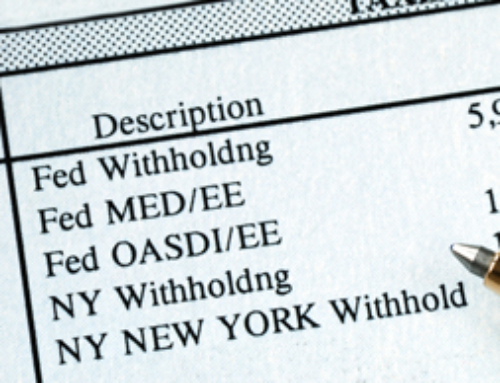Back when I had no interest whatsoever in tax matters, it used to amuse me to see a television episode or movie scene about dining out courtesy of the Tax Man. The script may have gone something like this:
Hey Joe, this is a great restaurant. Can you really afford it?
No worries Matt, Uncle Sam is picking up the tab.
Aw come on Joe, this isn’t a business dinner, we’re just old buddies getting together.
Well, Joe, you just said the magic word—“business.” See, now it’s a business meal.
Sure, you laughed, and I laughed along with you. We all want to feel like we’re ripping off the system. At least a little.
I don’t laugh quite so much anymore. Now I am responsible for keeping people out of trouble. Instead, I wag my finger at my clients and remind them that we’re only deducting real business meals.
Over $7 billion worth of meals and entertainment deductions are taken annually by sole proprietors—people in business for themselves . But the IRS is certain it will disallow some of these expenses when it audits small business tax returns for meals and entertainment.
Why? Because hardly anyone keeps proper records. And without proper records, it’s impossible to defend your deductions when you’re audited.
What records do you need to keep?
There’s no secret. The IRS spells it out in Publication 463: Travel, Entertainment, Gift, and Car Expenses.
For each meal or entertainment deduction, you need records with the following information:
Cost – Keep the receipt; don’t just rely on the credit card statement. Be sure to show any additional costs, like tips, that were added to the bill.
Date – All receipts these days will show the date. Most will also show the time of day.
Location – Show the name and address of the restaurant or entertainment venue. Spell out the nature of the place if it’s not obvious from the receipt or invoice.
Business Purpose – Why and how was this event related to business? Was this specifically a business meeting? Was the meal or event related to a business conference, trade show, or other occasion that is clearly for business purposes? Were you traveling out of town overnight on business—and is this a travel meal?
Relationship – Who were your guests? Include their business title or business card with your records if they are people you don’t do business with regularly. In an audit, you may need to be able to prove they were with you at the meal or event.
One thing I’ve seen people do before audits is re-create their business guest information to reconcile to the information on their credit cards. Smart people go through their appointment books and enter the names of the people they were with that day.
On the other hand, tax cheats just enter the names of any business associates into the worksheet, figuring no one is going to go to all the bother of contacting their “guests” to verify the information. However, sometimes, when the IRS audits, it will make inquiries when it sees the same name in your records regularly. If the IRS can prove your guest was somewhere else at the time…you’re in trouble.
Of course, you’ve never done that.
For great ideas on how to turn meals and trips into valid deductions, check out my recent post about family vacations.
Eva Rosenberg, EA, is the publisher of TaxMama.com®, where your tax questions are answered. She teaches tax professionals how to represent you when you have tax problems. She is the author of several books and e-books, including Small Business Taxes Made Easy. Follow her on Twitter: @TaxMama







